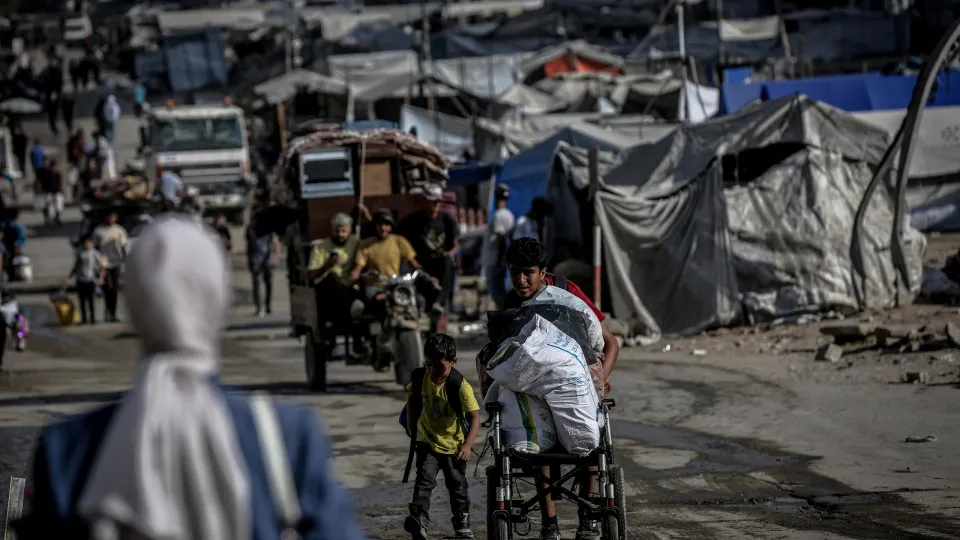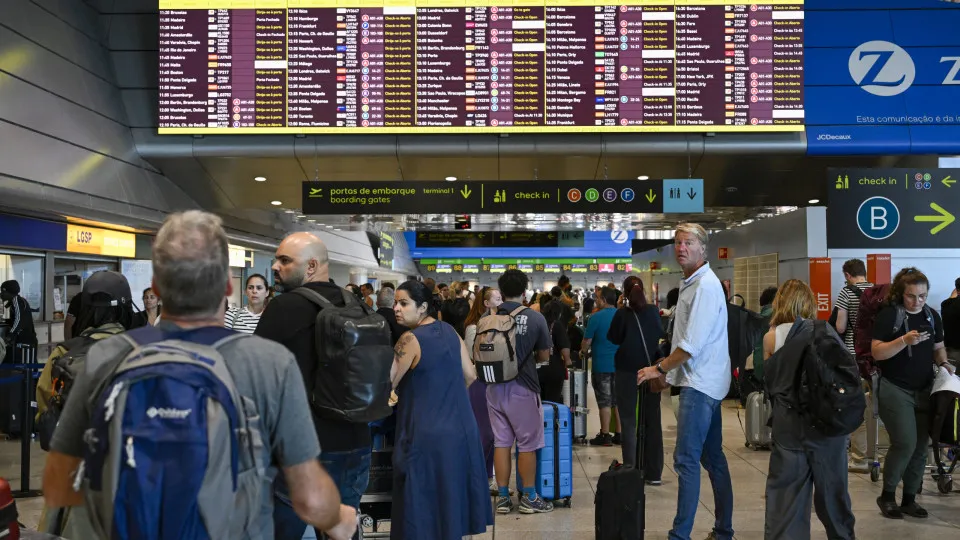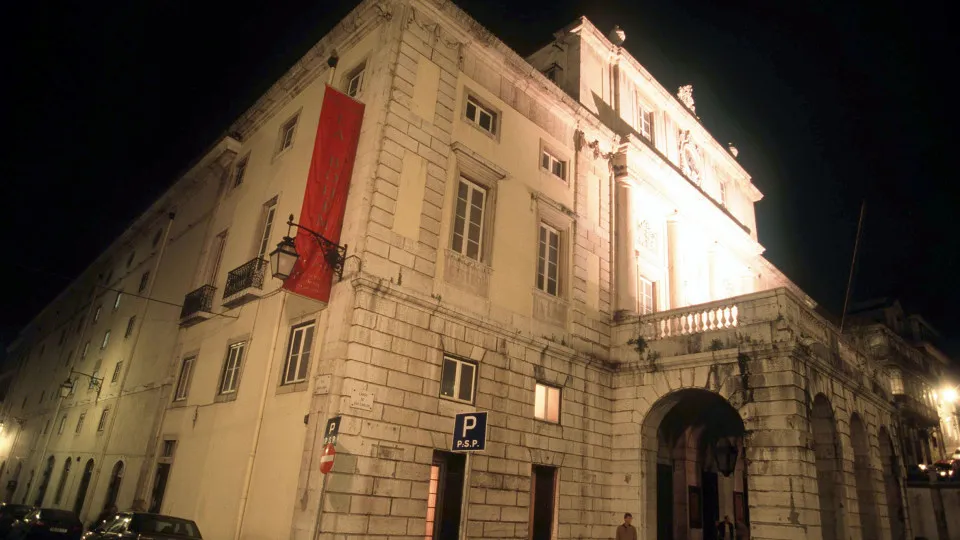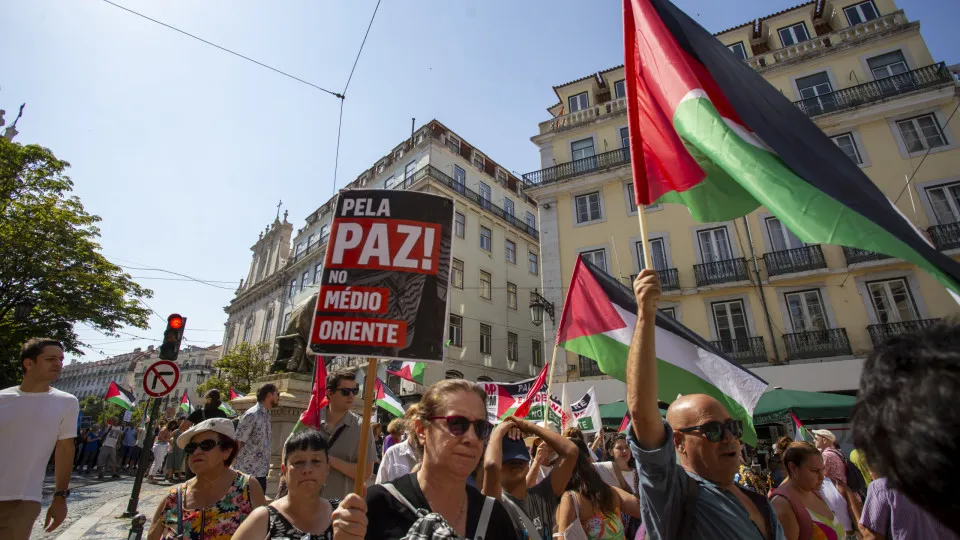
Felipe Pathé Duarte, a professor at NOVA School of Law in Lisbon, and João Henriques, vice-president of the Islamic World Observatory (OMI), both expressed that the blockade of Gaza will not automatically lift and violence is expected to continue indefinitely.
João Henriques pointed out that currently, 146 out of the 193 UN member states recognize the State of Palestine. This number is expected to increase by Sunday with Portugal’s recognition, as announced by its Ministry of Foreign Affairs on Friday.
On Monday, Portugal will join nine other countries at a conference promoted by France, including Andorra, Australia, Belgium, Canada, Luxembourg, Malta, the United Kingdom, and San Marino, where all of them will recognize Palestine as a State.
“Israel has stated that the war will not cease merely due to recognition, having made it very clear that it does not accept external impositions on the status of Palestine,” explained Pathé Duarte, signifying that any immediate impact would be “symbolic.”
“The potential recognition will not immediately change the Israeli occupation of the West Bank and East Jerusalem. In practice, that will continue. The blockade of Gaza will not automatically disappear. Hamas will continue to control Gaza, creating a complex issue, particularly in terms of two forms of authority since the situation in the West Bank is under the control of the Palestinian Authority’s Fatah, while in Gaza it is Hamas. Therefore, the UN does not recognize Hamas as a legitimate government,” the international policy analyst justified.
According to Pathé Duarte, recognition of Palestine as a state would shift perspectives from seeing the Palestinian people solely under occupation to treating them as a sovereign nation with equal rights and duties, especially diplomatic and legal-political recognition.
“Recognition is, without much room for illusions, symbolic, since the occupation and violence faced by the Palestinian population will continue to mark their daily lives for an undefined period,” emphasized João Henriques, arguing against Israel’s “constant disregard of decisions opposing its path of territorial expansion.”
Conversely, from the perspective of Benjamin Netanyahu’s government, as long as Hamas exists, it will “always be seen as an existential threat to Israel, or a potential existential threat to Israel,” said the Lisbon professor.
“Any two-state solution Tel Aviv might eventually accept will never consider the possibility of Hamas’s existence. That is what is happening. Israel will intensify the invasion in an attempt to completely eliminate Hamas. Only after that might it consider negotiating the State possibilities,” he stated.
In this regard, João Henriques emphasized that regardless of more countries recognizing the State of Israel, Israel Defense Forces (IDF) “will intensify the invasion in an attempt to eliminate Hamas,” which will be “difficult.”
“Hamas still has about 10,000 combat-ready personnel, many of them young, as its key figures have been eliminated,” he noted, stressing that the Islamist movement “will never stop confronting Israel” and will “eliminate the hostages still in its power before the arrival of the IDF.”
Concerning the role of the United States, Pathé Duarte argued that Washington “would hardly agree” to recognize Palestine as a state, reacting as “political opposition by using the veto in the UN Security Council to block various resolutions that recognize or strengthen this possibility of a Palestinian state.”
However, even though the United States cannot exercise a veto in the UN General Assembly, which starts Monday in New York, they could always express political rejection and not recognize Palestine bilaterally.
“The United States would hardly recognize this and would do everything to prevent it. The reaction will always be negative and actively opposing, using the Security Council, with very strong criticisms, possibly accompanied by financial sanctions, political criticisms, and always raising the argument that they will only recognize Palestine as a result of direct negotiations with Israel and not unilateral decisions by the United Nations or the so-called International Community,” he concluded.
Meanwhile, the OMI vice-president, when questioned about the US positioning in the conflict, claimed it will inevitably reflect on “diplomatic relations,” both regionally and globally, “particularly with some of its European and Middle Eastern allies.”
“This scenario may diminish the capability of the US to dictate its laws in the realm of multilateral decisions, potentially favoring increased protagonism for the European Union [EU], Arab countries, Russia, and China as well, which goes against Washington’s most recent intents for the region,” he asserted.
João Henriques suggested it could also lead to “a hardening of US positions through the application or intensification of existing sanctions, demanding good sense from the current occupant of the White House, which is quite doubtful.”




